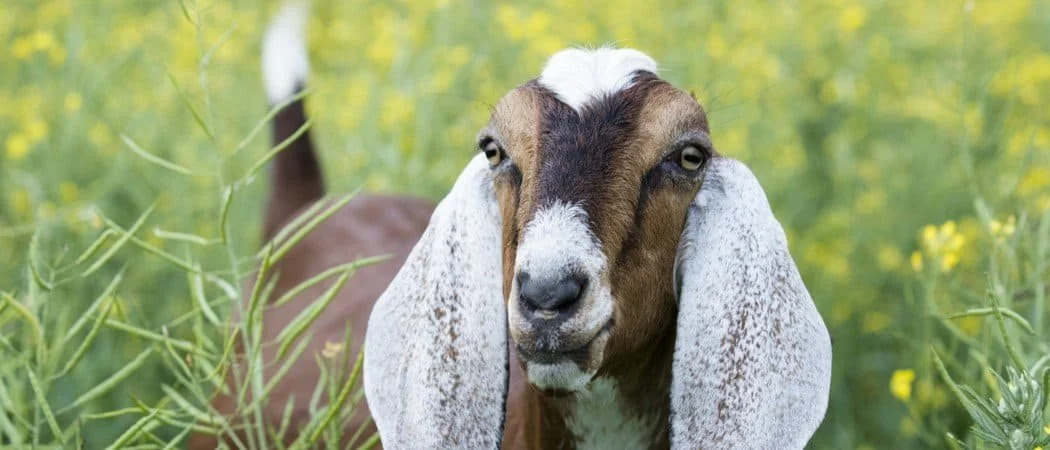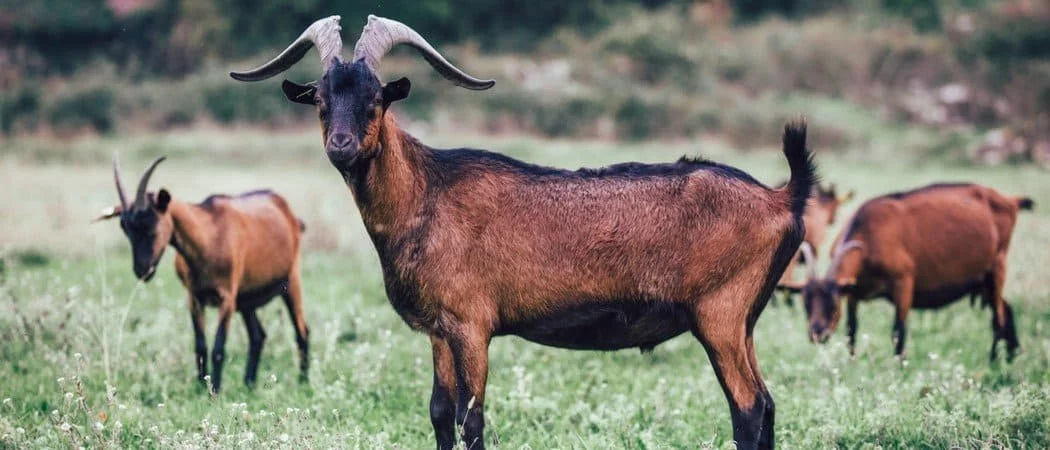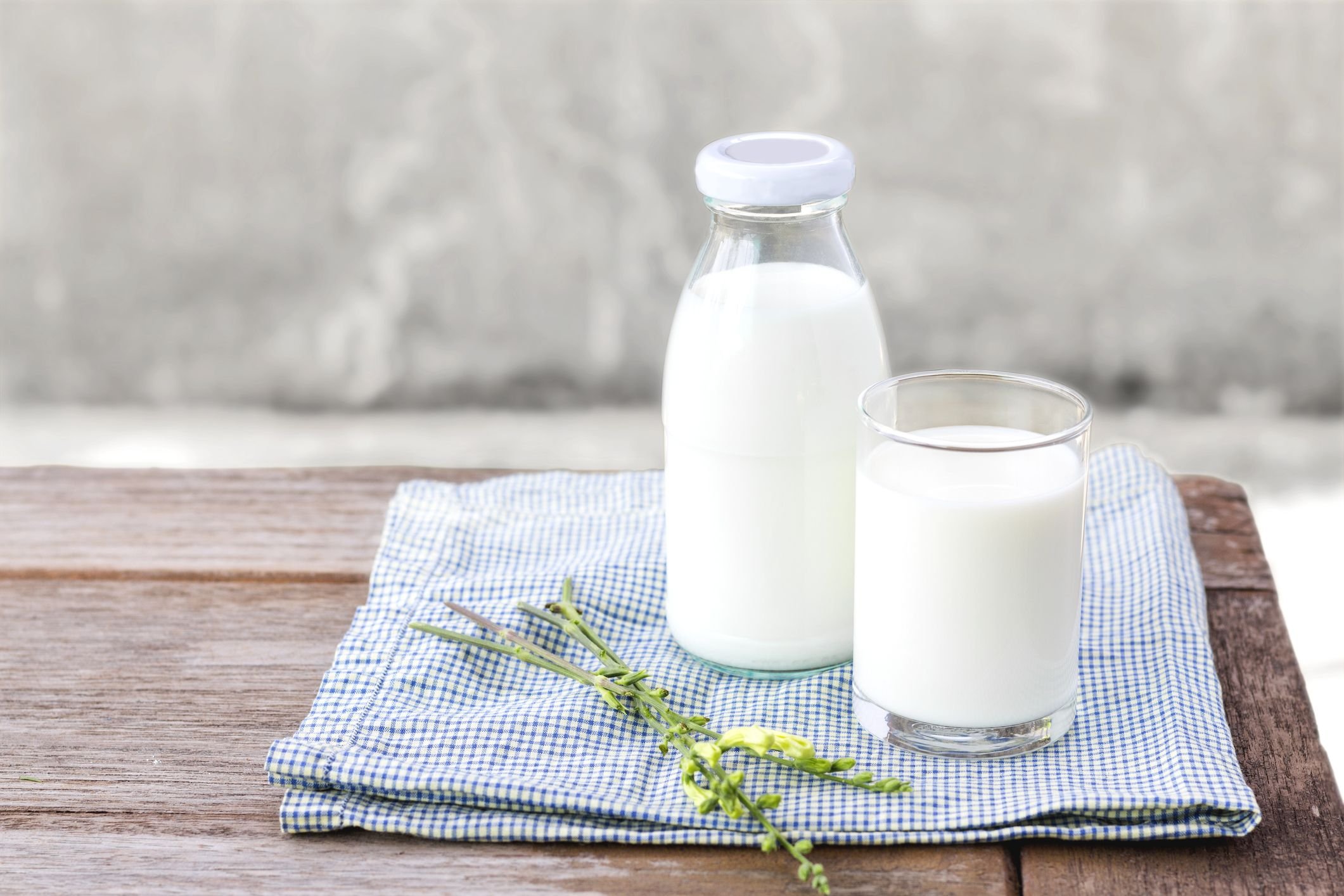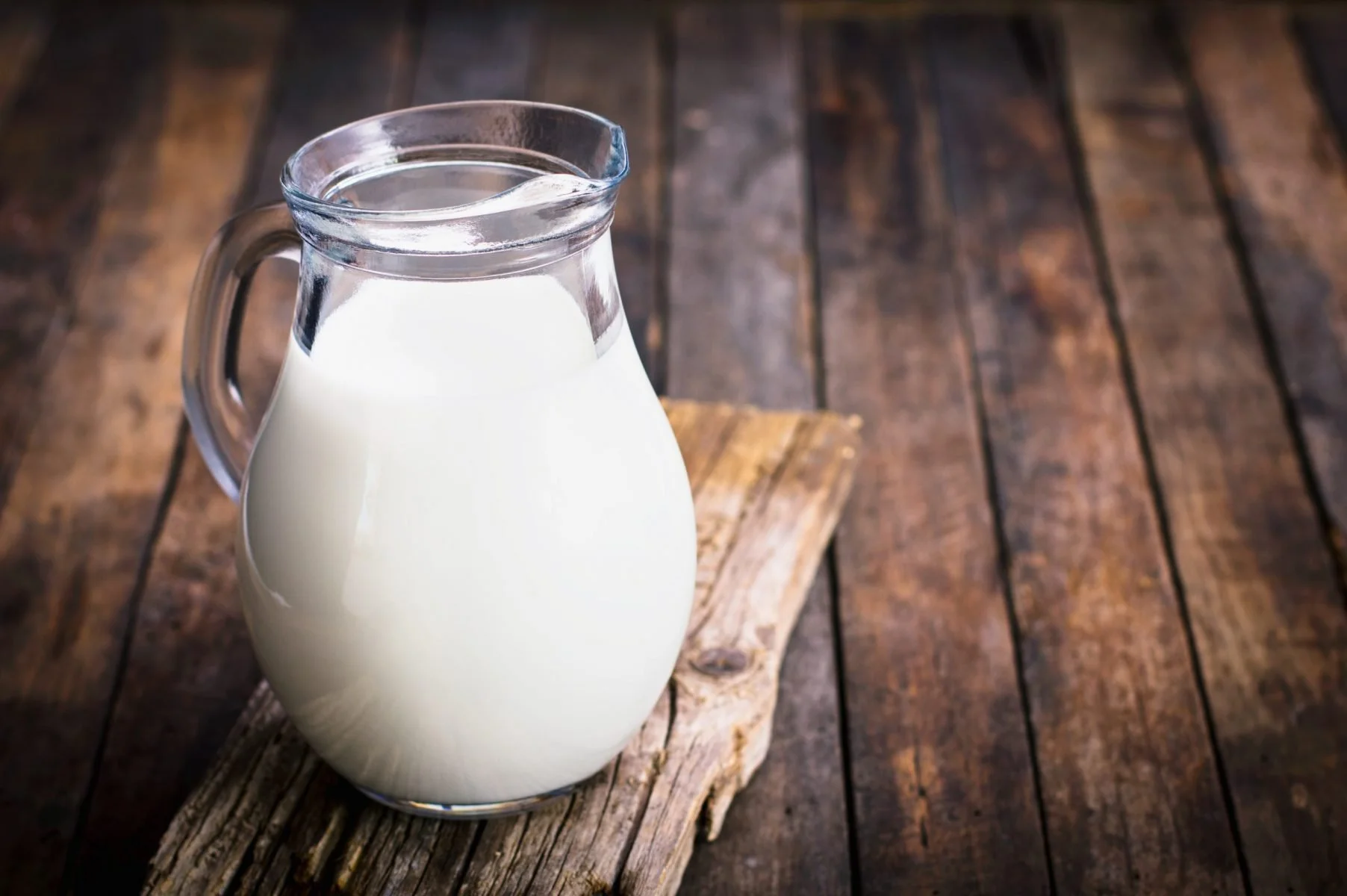The Benefits of Dairy Goats for the Homestead
Discover > Raising Goats > The Benefits of Dairy Goats for the Homestead
Dairy goats have evolved into multifaceted assets on modern homesteads, offering a rich tapestry of benefits that extend well beyond their endearing presence. This comprehensive exploration is your ticket to uncovering the myriad advantages that dairy goats bring to your homestead. We'll embark on a journey through the fundamental aspects of these goats, from understanding the breeds suitable for milk production to unveiling the remarkable composition and nutritional value of goat milk. Additionally, we'll delve into the intricate world of goat milk production, shedding light on the key distinctions between raw goat milk and fresh goat milk, and demystifying the factors that influence milk production.
Understanding the Basics of Dairy Goats
Understanding the basics of dairy goats is essential for those considering these remarkable animals on their homestead. From selecting the right milk-producing breeds to grasping the nutritional value of goat milk, this section delves into the foundational knowledge needed to embark on a successful dairy goat venture.
Breeds Suitable for Milk Production
The journey into the world of dairy goats begins with a critical decision: selecting the right breed for milk production. Among the numerous options, several stand out as exemplary choices:
Nubian Goats
Known for their high butterfat content, Nubian goats are exceptional milk producers, yielding rich and creamy goat milk. Their sweet and gentle disposition makes them a favorite on many homesteads.
Saanen Goats
Saanen goats are prized for their remarkable milk yield and mild-flavored milk. Their white coats and amiable nature make them an attractive choice for dairy enthusiasts.
Alpine Goats
Alpine goats are known for their hardiness and adaptability to diverse climates. They excel in milk production and contribute to the homestead with both quantity and nutritional quality.
Goat Milk Composition and Nutritional Value
The intrinsic composition and nutritional value of goat milk make it an invaluable addition to your homestead. Let's break down the components that make goat milk stand out:
Proteins
Goat milk is rich in essential proteins, encompassing both casein and whey proteins. These proteins are pivotal for muscle growth and overall health.
Vitamins
Goat milk is a natural reservoir of vitamins, including vitamin A, vitamin B12, and riboflavin. Vitamin A contributes to good vision, B12 supports red blood cell formation, and riboflavin aids in energy metabolism.
Minerals
Key minerals found in goat milk include calcium and phosphorus, both of which are critical for strong bones and teeth. Adequate intake of these minerals supports the skeletal system.
Fats
Goat milk boasts a moderate fat content, making it a preferred choice for those seeking a balance between richness and lower fat content in their dairy products.
Low Lactose Content
For those with lactose intolerance, goat milk offers a more digestible option due to its naturally lower lactose content, ensuring that more individuals can enjoy dairy without discomfort.
The Art of Goat Milk Production
Mastering the art of goat milk production is a pivotal aspect of dairy goat management. From discerning between raw goat milk and fresh goat milk to comprehending the factors that influence milk production, this section is a comprehensive guide to elevating your dairy goat endeavors.
Raw Goat Milk vs. Fresh Goat Milk
The choice between raw milk and fresh milk is a decision that depends on personal preferences and specific needs. Raw goat milk retains its natural state without any processing, preserving all of its enzymes and beneficial bacteria. This unprocessed form is often favored by those seeking unpasteurized milk for its potential health benefits. On the other hand, fresh goat milk, consumed shortly after milking, offers a delightful taste of the milk in its pure, unaltered state. It doesn't undergo pasteurization, a process that can alter both the milk's taste and nutritional profile.
Factors Affecting Milk Production
The production of high-quality goat milk is influenced by several factors. Let's outline the key determinants:
Breed Selection
The choice of goat breed significantly impacts milk production. Certain breeds, such as Saanen and Alpine goats, are renowned for their high milk yield.
Diet and Nutrition
Providing goats with a balanced and nutritious diet is essential to ensure they have the energy and nutrients required for optimal milk production. Quality forage, grains, and access to clean water are key components.
Milking Routine
Consistency in the milking routine is crucial. Goats should be milked at the same times each day, as irregular milking can lead to reduced milk production.
Hygiene and Health
Maintaining clean and healthy living conditions for goats is of utmost importance. Clean bedding, regular hoof trimming, and preventative health measures reduce the risk of diseases and keep the goats in top condition for milk production.
Stress Management
A stress-free environment is essential for optimal milk production. Goats are sensitive animals, and a calm, peaceful atmosphere free from disturbances can make a significant difference in their overall well-being and milk output.
Top 5 Health Benefits of Consuming Goat Milk
Discover the top 5 health benefits of consuming goat milk, from its remarkable digestibility to its potential to boost the immune system. Explore how goat milk can promote bone health, contribute to glowing skin, and offer a lactose-intolerant-friendly alternative to cow's milk.
Improved Digestibility
Goat's milk is renowned for its digestibility, making it a favorable choice for individuals who experience discomfort or digestive issues when consuming cow's milk. The lower lactose content in goat milk often eases the digestive burden, and the smaller fat globules contribute to a smoother digestion process.
Potential Immune System Boost
Goat milk contains essential nutrients like vitamins, minerals, and antioxidants that can support your immune system. It is a good source of selenium, a mineral known for its role in bolstering immune function. Additionally, the vitamins in goat milk, including vitamin A and vitamin B12, contribute to overall immune health.
Bone Health and Goat Milk
Calcium and phosphorus are vital minerals found in goat milk, contributing to strong bones and teeth. Consuming goat milk regularly can help maintain bone health and reduce the risk of osteoporosis and other bone-related conditions.
Promoting Skin Health
The nutrients in goat milk, such as vitamin A, can be beneficial for maintaining healthy skin. Vitamin A is known for its role in skin repair and rejuvenation. Goat milk's moisturizing properties make it a popular ingredient in skincare products.
Goat Milk for Lactose-Intolerant Individuals
For those with lactose intolerance, goat milk provides a suitable alternative to cow milk. Its lower lactose content often allows individuals with lactose intolerance to enjoy dairy without the digestive discomfort associated with traditional cow's milk.
Beyond Drinking: Goat Milk-Derived Products
Goat milk-derived products unveils the culinary possibilities and artisanal creations that stem from this versatile dairy source. This section guides you through the process of making delectable goat milk yogurt and cheese, and highlights the extensive range of recipes where goat milk adds its unique flavor and nutritional benefits.
Making Goat Milk Yogurt and Cheese
Producing goat milk yogurt and cheese at home is a satisfying and straightforward process. To make goat milk yogurt, begin by heating the milk to 180°F (82°C), then cool it to 110°F (43°C), add yogurt culture, and let it ferment. For cheese, start by heating the milk to the appropriate temperature, adding a coagulant like rennet, and separating the curds from the whey.
The Versatility of Goat Milk in Recipes
Goat milk's versatility in the kitchen knows no bounds. It can be used in various recipes, from creamy pasta (how long does pasta last?) dishes to delectable desserts. The unique flavor of goat milk adds a delightful twist to culinary creations, making it a popular choice among chefs and home cooks alike.
How Dairy Goats Enhance Your Homestead
Integrating dairy goats into your homestead environment is a multifaceted approach that enriches your self-sufficiency and economic stability. This section explores how these animals, known for their milk production, contribute to your homestead's sustainability and financial well-being.
Self-Sufficiency Through Goat Milk
Goat milk offers an essential component of self-sufficiency on your homestead. It provides a readily available source of high-quality milk, which can be transformed into a variety of dairy products, reducing the need for store-bought items and increasing your homestead's self-reliance.
Economic Benefits of Goat Milk Production
Beyond personal consumption, goat milk production can be a source of income for your homestead. By selling surplus goat milk or value-added dairy products, you can contribute to your financial stability while enjoying the numerous benefits of dairy goats on your property.
Goat Milk's Role in Nourishing Your Family
Exploring the nutritional significance of goat milk in family nutrition is essential for harnessing its potential as a healthful dairy choice. This section explores how goat milk serves as a nutrient-rich alternative to cow's milk and provides a comprehensive comparison with almond milk (how long does almond milk last?) to guide families in making informed dietary decisions.
A Healthier Alternative to Cow's Milk
Goat milk stands as a healthier alternative to cow's milk for many families. Its digestibility, lower lactose content, and nutritional richness make it a valuable choice for those seeking a nutritious and easily digestible dairy product.
Comparing Goat Milk to Almond Milk
In the realm of dairy alternatives, goat milk offers a robust nutritional profile that often surpasses almond milk. While almond milk is known for its nutty flavor and plant-based appeal, goat milk provides a richer source of essential nutrients, making it an attractive choice for those seeking a dairy substitute with added benefits.
The Environmental Impact of Goat Milk Production
Delving into the environmental impact of goat milk production unveils a more sustainable and eco-conscious alternative to traditional dairy practices. This section explores how goat milk's lower methane emissions and efficient land use reduce its ecological footprint.
Lower Methane Emissions
Goat milk production offers a more environmentally friendly alternative compared to large-scale cow dairies. Goats produce fewer methane emissions, a potent greenhouse gas, than cows. This reduced methane output can have a positive impact on the environment and contribute to lowering the carbon footprint of your homestead.
Efficient Land Use
The smaller size of dairy goats compared to cows means they require less land and resources for grazing and shelter. This efficient land use makes it feasible to raise dairy goats on smaller homesteads and contributes to sustainable agricultural practices.
Benefits of Goat Milk for Growing Children
Examining the advantages of goat milk for growing children reveals a nutritionally beneficial choice for young ones. This section highlights the benefits of goat milk compared to human milk and its role in specialized infant formulas, addressing the unique dietary needs of children as they develop.
Goat Milk vs. Human Milk
While human milk remains the gold standard for infant nutrition, goat milk shares some similarities with human milk that make it a suitable alternative when breast milk is not available. The composition of goat milk is closer to human milk than cow's milk, which can make it easier for some infants to digest.
Goat Milk for Infant Formulas
Goat milk can be a vital component in specialized infant formulas designed for infants with cow's milk allergies or sensitivities. It serves as a valuable option for families seeking alternatives for their child's nutrition and development.
The Homestead Bond with Dairy Goats
The special relationship between a homestead and its dairy goats extends beyond practical benefits. This section delves into the multifaceted bond that forms, including educational opportunities for children and the stress-reducing effects of companionship with these gentle animals.
Educational Opportunities for Children
Dairy goats offer invaluable educational opportunities for children. Caring for goats, learning about their nutrition, and participating in milking routines can teach children responsibility, empathy, and valuable agricultural skills. These experiences can lay the foundation for a lifelong appreciation of agriculture and animal husbandry.
Stress Reduction and Goat Companions
The presence of dairy goats on your homestead can have a calming and stress-reducing effect. Interacting with these gentle creatures, observing their antics, and forming bonds with them can alleviate stress and promote mental well-being. Many homesteaders find solace in the companionship that dairy goats provide.
Embracing Dairy Goats for a Healthier, Sustainable Homestead
Embracing dairy goats on your homestead promises a multitude of benefits, from the nutritious yield of goat milk to the reduction in environmental impact. These remarkable creatures offer more than just sustenance; they contribute to the fabric of a sustainable and enriching homestead life. By selecting the right goat breeds for milk production, understanding the nutritional value of goat milk, and managing key aspects of production, you can unlock the full potential of dairy goats. Their contributions to your family's health, financial well-being, and personal fulfillment are profound, making them an invaluable addition to any homestead.













